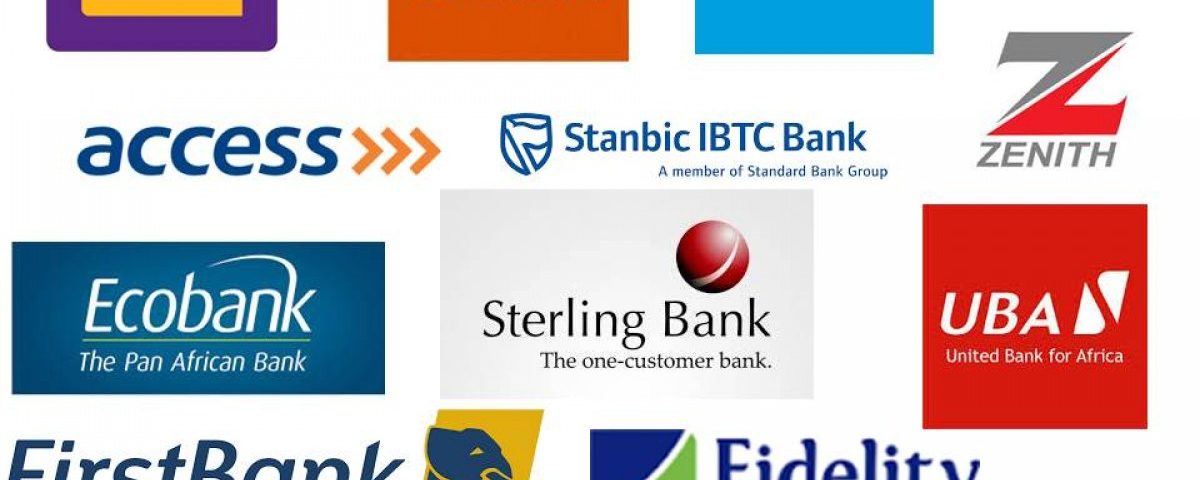Nigeria Update: Banks in excess loan deduction saga

Nigeria Update: Nigeria’s inflation slows to lowest rate in 30 months
July 23, 2018
Africa Update: Central Energy Fund signs 100MW CSP deal (South Africa)
July 23, 2018A growing number of Nigerians are now afraid to borrow money from the banks, not just for their inability to pay back, but that they would pay twice what they suppose to pay at the end of the transactions.
The development that portends eroding confidence in banking relationship, going by the level of complaints and alleged excess deductions on loan facility, may set back the level of progress reached in the financial inclusion drive.
Currently, a major bank is in full fledged court battle over alleged excess deductions running into billions of naira, while another one with international presence may soon emerge the next “bubble burst” in what may appear as a series of saga that would dominate the banking industry.
The new discovery is alleged to be excess deductions worth more than half a billion, which the lender has admitted part of the total.
The excess deduction means that apart from the agreed terms, changes in inflation level and any change in the Monetary Policy Rate during the period of the loan, banks deduct more money from the account of borrowers than what is due to them.
A former banker that worked in the control units of several banks with nearly two decades’ experience told The Guardian that this “over-deduction” or “excess deduction” on loan facility is subtle and normal thing done by every bank, but being discovered by few customers recently.
“The truth is that only few of the borrowers crosscheck their overall transactions, whether periodically or at the loan term. Some banks, if not all, even make provisions to suppress any protest, depending on the value involved. Some settle it quietly.
“It is worse for big ticket deals, I mean, those borrowing in billions. These ones, their interest deductions run into millions monthly. And that is when these excess deductions happen more. It is not a system malfunction, but a deliberate way of making money for banks by those in charge, as they are more of ‘traders’ for these financial institutions.
“Many customers also do not even know their rights and processes. But some that know, feel intimidated, considering the assessed financial strength of banks to suppress them at any level.
“Besides, some grossly overlooks the infraction on the conclusion that it will take more than the value of the money to reclaim it. But now that the secret has been exposed, very soon, more people or companies will be contesting their banking transactions.
What the rule says
According to the revised guideline to Banks And Other Financial Institutions In Nigeria 2017, provides a basis for the application of charges on various products and services offered by banks and Other Financial Institutions (OFIs) in Nigeria to their customers. Where a charge is stipulated as “negotiable”, banks and OFIs are required to draw the attention of customers to their rights to negotiate and the two parties are required to mutually agree on the applicable interest and/or charge via a verifiable means. This is an obvious missing links in ban-customer relationship. They are not always fast about drawing the attention of customers to their rights to negotiate.
Section 2.1 of the guide said that local currency loans are negotiable, but “the rate should anchor MPR, reflecting the risk-based pricing model. Also, when the bank intends to introduce a new rate different from the agreed rate, the bank should notify the customer of the new rate at least 10 business days in advance of the application of the new rate.”
It is obvious that banks have severally breached this law, as majority of bank customers say they did not received notice before changes in their terms of loans.
Section 3.2.4 (g) of the CBN Monetary Policy No 39, provides that “banks shall refund identified excess charges, non-payment or under-payment of interest on deposits, unauthorised debits, along with interest.”
Also, in line with CBN Monetary, Credit, Foreign Trade and Exchange Guidelines, complaints relating to excess charges and loans shall be treated within 30 days as provided in the circular number FDR/DIR/CIR/GEN/009 of July 2, 2014. These provisions are variously violated by banks.
What the customers say
Onuama Ibe, a customer of one of the top five banks, said any mention of loan deal is now irritating to him, just as he recounted his ordeal and the struggle he made to end a loan facility due to unclear deductions.
For him, banks are taking advantage of the low knowledge-base of their customers to enrich themselves, saying one can only contest what one is aware of, adding that he never considered the deductions at a point, but seeing the end of the relationship once for all time.
Citing the experience of a major transport company that contested and got a reversal of such excess deductions worth millions, which the bank hurriedly obliged to avoid public knowledge, he said other transporters then used it as a model in negotiating loans with bank subsequently.
“I cannot go to bank again for any sort of borrowing. You can only understand what they are up to once you enter into the deal. It may start good, but sooner than later, things would change.
“Beside the case of excess deductions on loans, what about the money that is deposited, which they deplete severally for services that you did not ask for. At Christmas, Easter, Sallah, birthday and national holidays, among others, they send you goodwill messages and charge you, even with Value Added Tax,” Ibe bared his fangs.
A Nurse, who identified herself as Mrs. Ajala, said she hurriedly borrowed money from the cooperative society to repay the loan she collected from one of the top five banks, when the monthly got out of hand, noting that she could not afford to wait and scrutinize the bank’s withdrawals, citing costs, time wasting and more bills from the lender.
For Chuma Uko, beside banks’ regular illegal charges that are now in multiples, they debit you variously when you enter into loans and they do it like “nothing will happen.”
A transporter, Mr. Olayinka, said that if you enter into loan deal with a bank, that is when you will know that you have mortgaged yourself, not just the property to them. “What will remain for you is just to commit suicide. It is a ‘no go area’”, he added.
What the bankers say
In an encounter with the Director of Banking and Payments System of the Central Bank of Nigeria (CBN), ‘Dipo Fatokun, he said such development is something that should not be heard about in the industry, assuring that the regulator does not treat it with “kids glove.”
However, he said that such complaints are treated on merit, not just hearsay, advising that customers with such issues would need to sort it out with the commercial bank and when that fails, it must reported to the apex bank’s department for consumer protection.
According to him, it is on record that complaints of similar nature have been reported and illegal withdrawals worth billions of naira have also been reversed.
He also reiterated that there are always sanctions for erring institutions, depending on the level and manner of the infractions.
But in a random visit by The Guardian to 22 Business Managers of 15 different banks from Festac Town, Ago Palace Way to Okota areas in Lagos, only two, who would not want their names in print, explained their experiences and the level of customer complaints on the matter.
Both managers admitted receiving such complaints from few branch customers who have loan facilities, but differed in the causes of the deductions, while one dismissed entirely the realities of such in the bank.
The Business Manager of one of the top five banks said the complaints do not reflect realities, as loans and repayments are programmed, saying that while it may be possible in other banks, it is not obtainable in their organisation.
“I don’t know how others do their own. I only know that economic variables change and that reflect on repayment schedules. I also know that repayments can go up, but not necessarily possible to go down. Maybe, the differences they get from these economic variables make up their calculations.
“It is true that the level of knowledge in banking transactions is low and not many can dig deep to solve the intricacies involved in these calculations. But as a trusted partner, we have the duty to do what is right,” the banker said.
The other Business Manager from a mid-tier bank said that loans have direct link to the head offices not minding the branch where they are booked and complaints of excess deductions are always calibrated to the head office.
“Sometimes, there might be changes that will cause a significant charge, which may be interpreted as excess deductions. Well, I do not dismiss entirely the occurrence of such issue, but the reason is what I do not know,” the banker said.
What banks’ balance sheet says
The 2017 financial year was marked by challenges for all corporate organizations, as the recession effects bite harder. Banks, alreading reeling under difficulties, had more to grapple with, especially as non-performing loans’ status remain unbending, while credit to private sector becomes daring.
Surprisingly, 13 commercial banks posted a more than N2trillion net interest income, though majorly from the fixed income securities. This was an increase of about 11 per cent over the 2016 record. But private sector lending, now being subjected to questionings by the rising complaints of excess deductions, may have contributed too to the pool.

